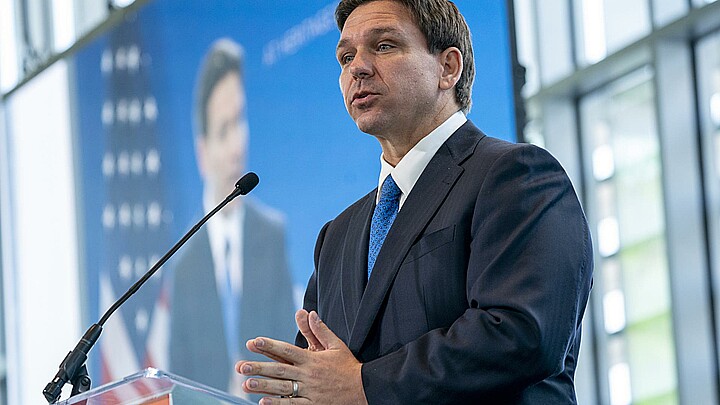Education
Federal judge allows University of Florida professors to testify as experts against state
The state university’s conflict of interest policy says the professors shouldn’t testify against Florida—the court disagreed
January 22, 2022 8:53pm
Updated: January 22, 2022 8:56pm
A federal judge on Friday in a highly watched First Amendment case that six University of Florida professors could give expert testimony or file amicus briefs in lawsuits against the state that challenge its new state election laws, despite the school’s conflict of interest policy.
In the ruling, U.S. District Judge Mark Walker for the Northern District of Florida concluded the university suppressed the free speech of the professors and granted the professors a preliminary injunction which will expressly prevent the school from taking retaliatory action against them.
The judge’s ruling drew an allegory between the Florida university’s actions to Hong Kong University’s recent removal of the 1989 Tiananmen Square Massacre sculpture.
“In many ways, the Pillar’s demise was emblematic of the demise of academic freedom in Hong Kong,” Walker said in describing the University of Florida’s conflict of interest policy.
He then added barred the university from taking retaliatory action against the professors.
“Defendants must take no steps to enforce its conflict-of-interests policy with respect to faculty and staff requests to engage as expert witnesses or provide legal consulting in litigation involving the State of Florida until otherwise ordered,” Walker ordered.
The court ruling comes after three professors brought a lawsuit against UF after being told that serving as expert witnesses or filing amicus briefs would be against the university’s best interest. Soon thereafter, two law professors and a pediatrics professor joined the suit.
UF’s Assistant Vice President of Conflicts of Interests Gary Wimsett originally denied the professor's requests on the basis that the “activities are adverse to its interests,” writing that, “As UF is a state actor, litigation against the state is adverse to UF’s interests.”
Paul Donnelly, an attorney representing the professors told the Tampa Bay Times, “It is a profound, chilling, frightening change in policy.”
But UF issued a statement insisting the university didn’t deny the professors’ First Amendment rights: “Rather, the university denied requests of these full-time employees to undertake outside paid work that is adverse to the university’s interests as a state of Florida institution.”
For now, the current ruling federal court has disagreed.
“UF has bowed to perceived pressure from Florida’s leaders and has sanctioned the unconstitutional suppression of ideas out of favor with Florida’s ruling party,” Judge Walker wrote.
The U.S. District Court ruling is only the first layer of the federal court process. If the university decides to appeal, the case will go to a federal three-judge panel the U.S. Circuit Court of Appeals for the Eleventh Circuit. If that ruling is appealed, and a writ of certiorari is granted, it could potentially be reviewed by the Supreme Court of the United States.










